Aaron Fa’Aoso is an actor, screenwriter, director and producer based in Cairns, Far North Queensland. Aaron is a Torres Strait Islander, which is one of Australia’s First Nations peoples.
The Torres Strait Islands are a group of approximately 274 small islands in the Torres Strait, which is a waterway off Far North Queensland, separating Australia’s Cape York Peninsula and the island of New Guinea.
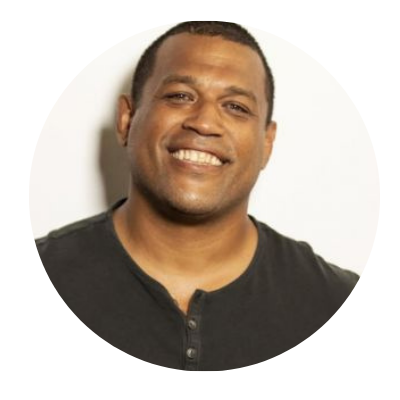
Since 2013 Aaron has been the Managing Director of his own production company, Lonestar Productions. Latest productions include Strait to the Plate, a food and culture series, and Blue Water Empire, a history documentary series, both exploring the Torres Strait Islands. As an actor, Aaron has starred in films and TV series including RAN: Remote Area Nurse, East West 101, The Straits, Bikie Wars: Brothers in Arms, and Goldwater. Aaron is a former board member of Media RING and is currently on the board of Screen Queensland and on the implementation committee for the upcoming Screen Queensland Studios: Cairns.
You started your career in radio. Can you tell us more about how this influenced and grew your skills and interest in performing, producing and storytelling in general?
In 1994 I was fresh out of high school and had moved from Cairns to Sydney, chasing a rugby league dream. I was living in Redfern, an opportunity presented itself and I was offered a trainee broadcaster position at Koori Radio.
It was mind-blowing. A fantastic introduction to, and education in, the Aboriginal and Torres Strait Islander social justice and political movement.
It was an exciting time in Sydney during the mid-90s to early 2000s, Sydney was preparing for the 2000 Olympics and there was a groundswell of arts and movement occurring in Sydney. For example, Screen Australia (known back then as the Australian Film Commission) established the Indigenous Unit in the wake of the landmark Mabo decision.
Given its base in Redfern, Koori Radio was a genuine community hub and it gave me the opportunity to interview and rub shoulders with a plethora of domestic and international artists – airtime on Koori Radio was much sought after by international artists who wanted to connect to the Aboriginal community in Sydney.
Most importantly though, it gave me insight into how important our stories, songs and dances are and that through radio we could give a platform to reach the masses. I feel my time in radio was my introduction into the creative world, as it gave me insight into writing, editing and developing an ear for story.
RAN: Remote Area Nurse was your first acting break. Can you tell us more about this experience and the world of the screen industry that opened up to you?
RAN catapulted me into the film and television industry – the song Lose Yourself by Eminem comes to mind, because even though I was a novice and had no prior acting experience, I knew that I had to apply myself and give it 110% focus.
I knew RAN might be my one and only shot. So I approached each day and each scene as if it were my last shot and as the chorus goes, “You only get one shot do not miss your chance to blow because opportunity only comes once in a lifetime.” I guess that’s the attitude, mindset and work ethic I applied, and I guess my work on that particular series speaks for itself.
On the flip side, whenever I haven’t applied that level of intensity my performances have been terrible! So my note to myself is to always keep grounded and approach each project and production with an attitude of a blank canvas.
Even as producer, writer or director (more often than not I will be all three, or at least the producer and creator) with each stage, I like to reset and approach with a new focus. That’s because financing a project is different to pre-production to production to post-production and delivery.
I like to approach each stage with reinvigorated energy and new focus, as opposed to the previous stage. I like to be conscious and self-aware of my energy, mindset and to know inside and out the task at hand. To remain in the present – I always have a plan but always like to remain nimble and to have the ability to pivot if need be. Acting has informed my creative process and my creative process has informed my acting.
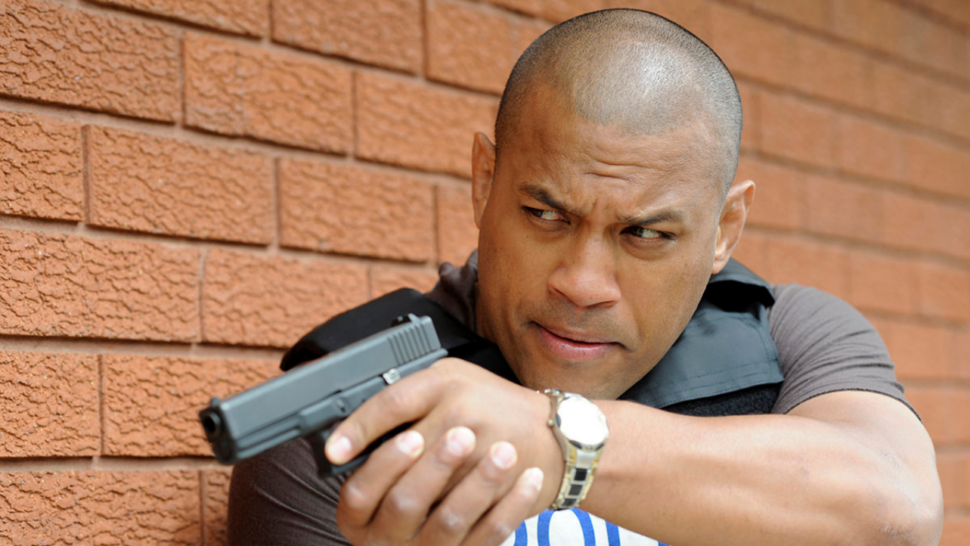
Tell us about how you made that critical first step beyond performing into producing, writing and directing. Did you have anyone guiding you, encouraging you and giving you contacts and techniques?
This all very much happened simultaneously. As I was cutting my teeth in acting, I was also extremely interested in creating content and I knew I wanted to produce, write and direct. My very first mentors in the industry were Penny Chapman and Helen Pankhurst – so having the privilege and honour to have these two fine producers as mentors was amazing and both were extremely generous with imparting their knowledge — sharing their experiences and insights of the industry.
Helen introduced me to Sally Riley and at that time Sally was the head of the Screen Australia’s Indigenous Unit (AFC) and she was about to roll out the Bit of Black Business writing and directing short film initiative, in partnership with SBS.
I applied and was lucky enough to score a place and have my short film Sharpeye produced by Kath Shelper. It was during this time that I also successfully pitched The Straits television series concept to Penny and Helen.
From there I’ve gone on from strength to strength, however, it’s not been without its challenges. Penny and Helen have been extremely important to my career and I will forever be thankful for their stewardship in the industry and value their continued friendship. I have also been fortunate throughout my time in the industry to have other mentors like Steve Knapman and Kris Wyld, and Peter Andrikidis. David Jowsey and Greer Simpkin have also had huge impacts on my career and continue to do so.
Similarly, my peers have contributed directly to my career, and I am extremely grateful to have colleagues — and now friends — like Jimi Bani, Wayne Blair, Warwick Thornton, Kath Shelper, Ivan Sen, Ashley Bradnam, Trish Lake, Leah Purcell OAM, Bain Stewart, Paul Walton, Jo Dillon, Chris Oliver-Taylor, Karla Burton, Neil Peplow, Kyas Sheriff, Mary-Ellen Mullane, Ian Murray, Beck Cole, Andrew Dillion, Jon Bell, Dena Curtis, Penny Smallacomb, Kristen Dunphy, Steve McGregor, Sally Riley and Gill Moody.
Today you are Managing Director of your own production company Lonestar, creating screen stories like Blue Water Empire and Strait to the Plate (Seasons 1 & 2). What does it mean to you to helm a company that can bring these stories to life and be a leading producer in the national space?
I have always had a vision and desire to establish a production company with a view to creating Torres Strait Islander content for an international audience. It enables me to work in the Torres Strait homeland on a regular basis and create opportunities for fellow Torres Strait Islander practitioners.
Lonestar Productions is based in Cairns, and you have been part of the implementation committee for the new Screen Queensland Studios: Cairns. What will the studios enable for local producers like yourself, as well as interstate and international producers, who are looking for a flexible studio space with close access to stunning locations?
Screen Queensland Studios: Cairns will of course encourage domestic and international productions to think of Far North Queensland not just as a location destination on the doorstep of the spectacular Great Barrier Reef and ancient Daintree Rainforest, but as a film production hub.
On a local level, the studios will enable local producers to be more ambitious through access to VFX capabilities. It will inspire a generation of filmmakers to either stay in Far North Queensland to complete their studies or inspire them to come and work and create content back home.
The aspiration is to develop and create a thriving Far North Queensland film and television hub, and a First Nations focus can be better enabled to take front and centre in our industry. The Studio will be dovetailed by a film and television educational institution with a vision to provide students with never-before-available access to industry, inspiring the next wave of Australian filmmakers.
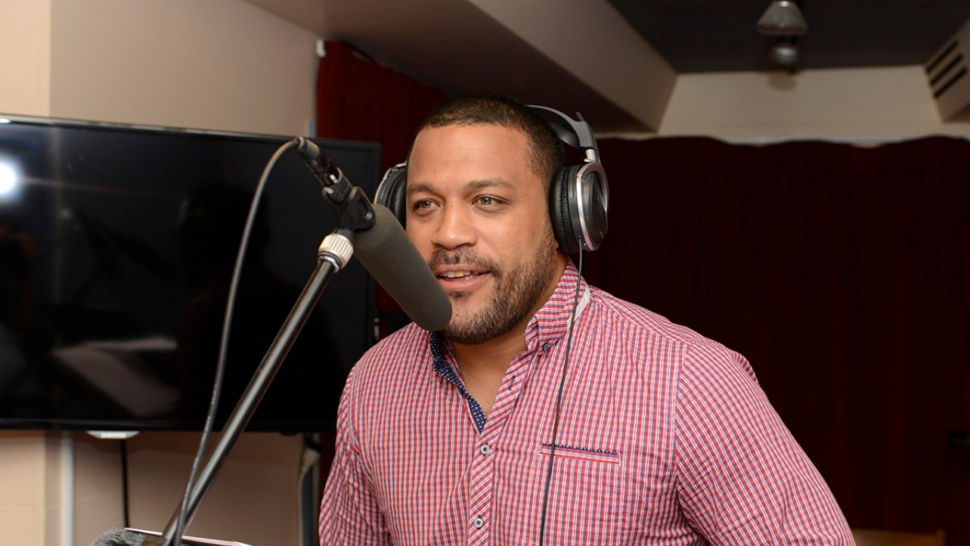
What are your favourite aspects of the day-to-day process of creating a production or being on-set?
I enjoy the entire process from creating the initial concept to landing the pitch to financing, pre-production, production, post-production, delivery, marketing and screening. Each stage of the process has its challenges, but they are always solved creatively. People management is also a part of the process, as is keeping up the team morale during challenging times.
I find that people appreciate transparency and honesty – producing is many things but in my view it is about vision, leadership, and creating and maintaining a healthy respectful working environment. I like to surround myself with smart people and experts in their field. Filmmaking is a collaborative process and I love the process and engaging with my peers.
What are your views generally about opportunities available in the screen industry for First Nations people and particularly Torres Strait Islander people? On-screen, behind-the-scenes and the kinds of stories the audience see on-screen.
I have some big dreams for using the media, film and television industry to drive regional and community development in the Torres Strait and Northern Peninsula Area. I want more Torres Strait stories to be told, and to draw more content creators to the Torres Strait region.
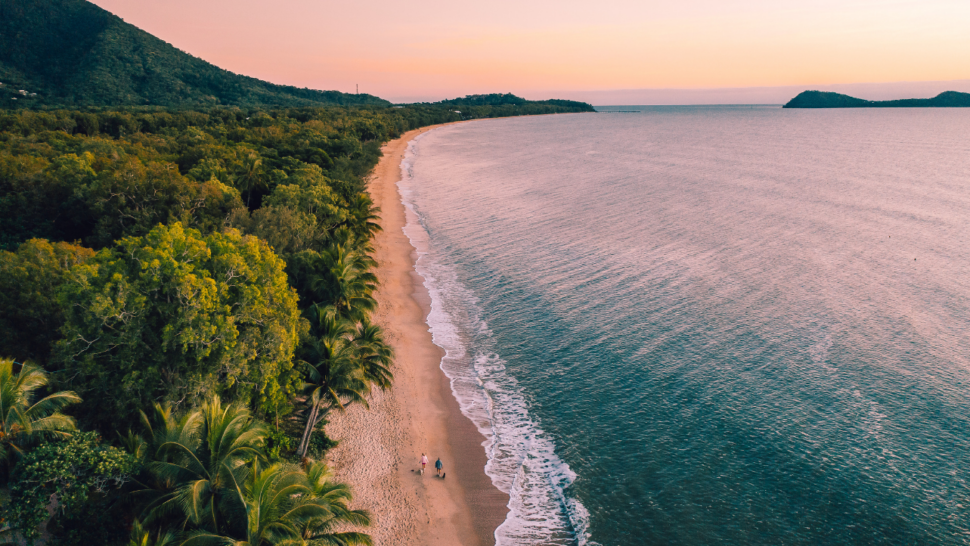
Screen Australia’s Indigenous Unit and Screen Queensland’s Aboriginal and Torres Strait Islander Program have made significant achievements in identifying and supporting Aboriginal and Torres Strait Islander talent and production support, but only a small percentage of projects (by my estimate, around 4%) have been for Torres Strait Islander initiatives.
Given that around 10% of Australia’s First Nations population identifies as Torres Strait Islander or of both Aboriginal and Torres Strait Islander origin, it’s a pretty bleak disparity. Torres Strait Islanders – in the media industry and across a multitude of industries – are constantly forgotten about. We’re the minority of a minority and we need to shout if we want to be heard.
What is required is a focussed Torres Strait Islander strategy, remit and recurrent initiatives to develop talent activation and sustainable career paths and an ongoing slate of content creation.
I’m extraordinarily proud to be the first Torres Strait Islander to sit on the Board of Screen Queensland, but I plan to ensure I’m not the last. Sub-committees, working groups and advisory committees do excellent work, but Torres Strait Islanders with current community endorsement and industry experience need to be invited to sit at the top tables.
We need to be the final decision-makers too – otherwise, the disparities will remain and change will be too slow.
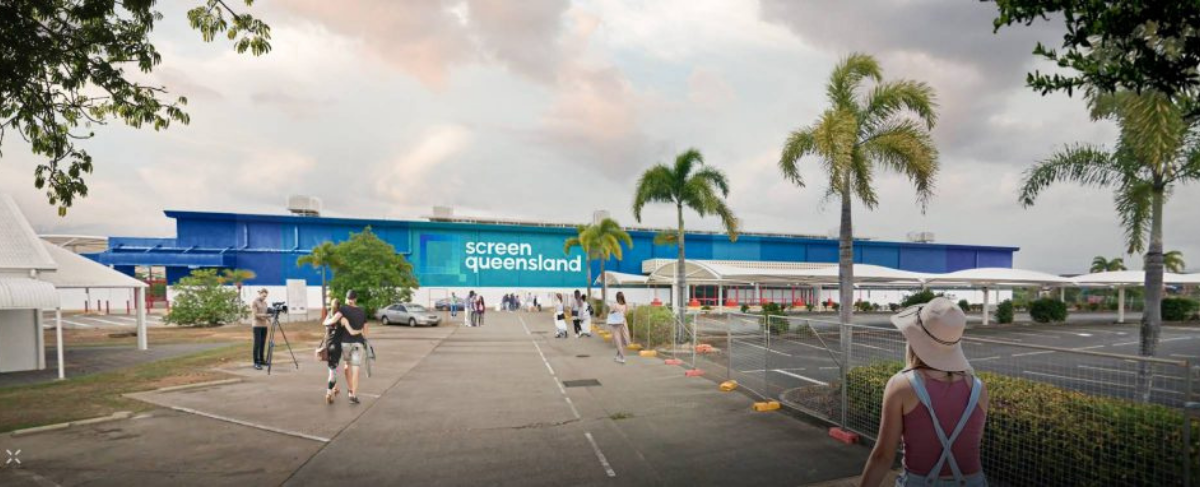
For more information on Screen Queensland Studios: Brisbane, the upcoming facilities in Cairns and the Gold Coast, contact:
Derek Hall, Head of Studios
[email protected]
+ 61 401 965 083
